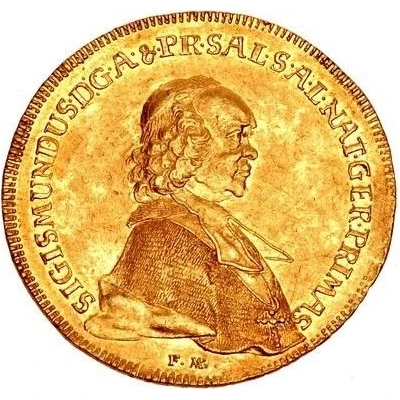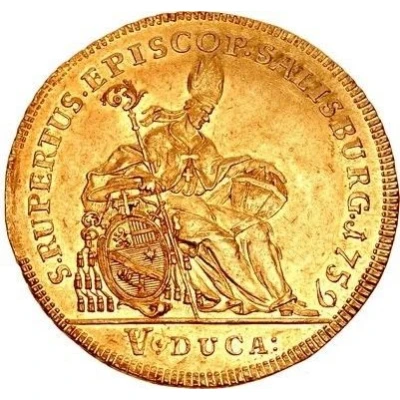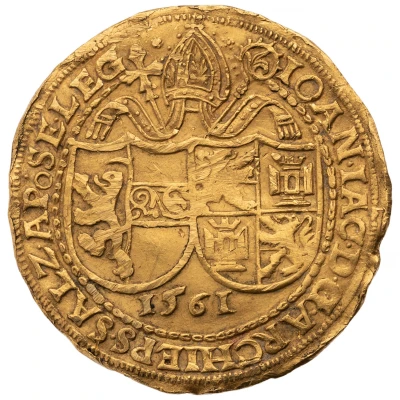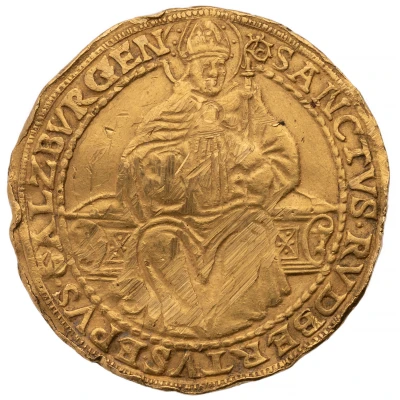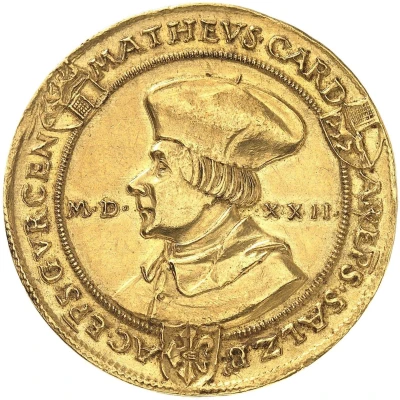
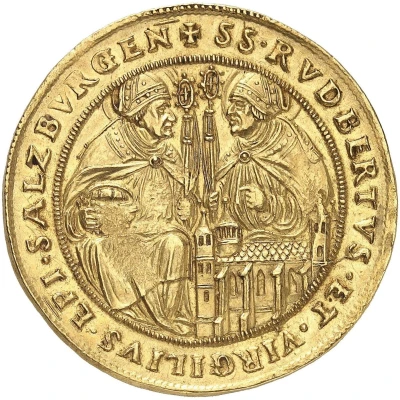

© Fritz Rudolf Künker GmbH & Co. KG, Osnabrück and Lübke & Wiedemann KG, Leonberg
6 Ducats - Matthäus Lang von Wellenburg
1522 year| Gold (.986) | 21 g | 38 mm |
| Issuer | Bishopric of Salzburg (Austrian States) |
|---|---|
| Prince-archbishop | Matthew Lang of Wellenburg (Matthäus Lang von Wellenburg) (1519-1540) |
| Type | Standard circulation coin |
| Year | 1522 |
| Value | 6 Ducats (6 Dukaten) (13.5) |
| Currency | Thaler |
| Composition | Gold (.986) |
| Weight | 21 g |
| Diameter | 38 mm |
| Shape | Round |
| Technique | Hammered |
| Demonetized | Yes |
| Updated | 2024-10-04 |
| Numista | N#331938 |
|---|---|
| Rarity index | 95% |
Reverse
2 saints seated facing each other
Script: Latin
Lettering: + SS • RVDBERTVS • ET • VIRGILIVS • EPI • SALZBVRGEN
Interesting fact
One interesting fact about the 6 Ducats - Matthäus Lang von Wellenburg 1522 coin is that it features a unique design element - a small hole in the center of the coin. This hole was intentionally drilled during the manufacturing process and was believed to have been used as a way to test the coin's authenticity. The hole was said to be able to reveal whether the coin was made of pure gold or not, as a genuine coin would have a distinctive ring when dropped on a hard surface. This feature makes the coin particularly interesting to collectors and historians, as it showcases the innovative techniques used in coin manufacturing during the 16th century.
